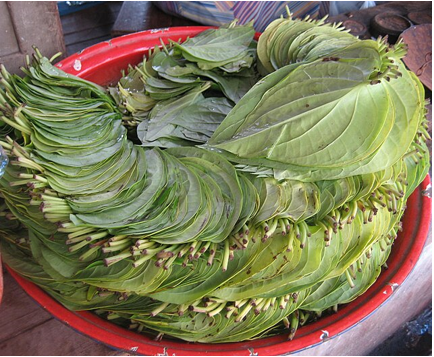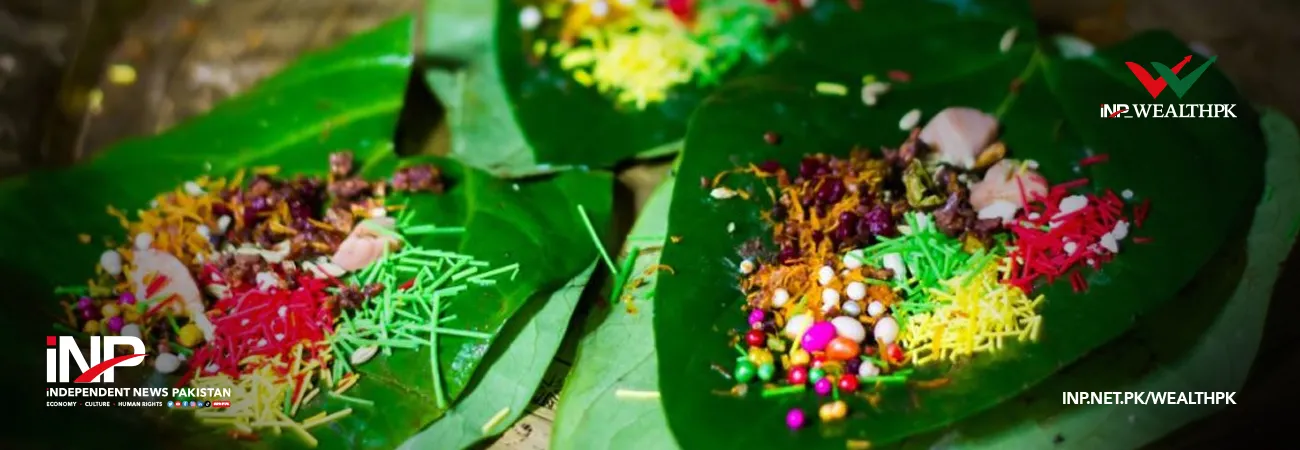INP-WealthPk
Muhammad Luqman
The historic Paan Gali located in the world’s renowned Anarkali Bazaar used to be a hub of Indian merchandise, but now it is a traditional market in Pakistan’s eastern city of Lahore.

The recent India-Pakistan conflict has brought the inflow of goods from the neighboring country to a halt. The Paan Gali – comprising three lanes with some 50 shops – is still full of betel leaves (paan), betel nuts (supari), katha (Catechu), saunf (fennel seeds) and other ingredients of Paan. But these products are no more of Indian origin. “We have to reposition ourselves according to the changing situation.
Now the betel leaf from Sri Lanka (brown leaf) and Bangladesh has taken place of Indian one,” Muhammad Farhan, a paan-seller, told WealthPK. He said the Paan produced in Thatta and other coastal areas of Pakistan was also making way to the Paan Gali but still people prefer the imported paan. Betel nuts from Singapore and Sri Lanka have replaced the Indian one.
In the past, besides paan and related items, the merchandise mainly sold in this Gali had been Sarees (embroidered cloth, kamdani, jamawar, banarsi, kataan, chikan), Ayurvedic medicines and beauty products. In place of Indian Saaris, the traders have started selling the Pakistani cloth in the name of Indian ones.
Even before complete suspension of India-Pakistan trade in April this year, the bilateral trade had touched the low in 2019 after the imposition of 200 percent tariff on Pakistani products by India and reciprocal measures by Pakistan. During the recent conflict, India and Pakistan have closed the Wagha-Attari border for trade. In addition, imports through third countries like the UAE or Singapore have also been banned this time.
The third country trade had previously helped the Paan Gali continue the business unofficially. The trade associations are worried about the future of Paan Gali traders. Yet, they don’t support the sale of Indian products illegally, asking businessmen to sell only legal and non-Indian products.
“We will never support the sale of products from an enemy state; Paan Gali traders should not sell Indian products until the situation normalizes,” said Khalid Pervez, President of All Pakistan Anjuman-e-Tajiran, while talking to WealthPK. He said businessmen should act like patriotic Pakistanis instead of doing illegal things just for the sake of money.
Despite unfavorable conditions, the Paan Gali traders believe that the change in merchandise might impact the market's dynamics, but Paan Gali's rich history and cultural significance will likely continue to attract customers. As a hub of traditional items and cultural exchange, the market may evolve to incorporate new products while maintaining its unique charm.
Credit: INP-WealthPk













